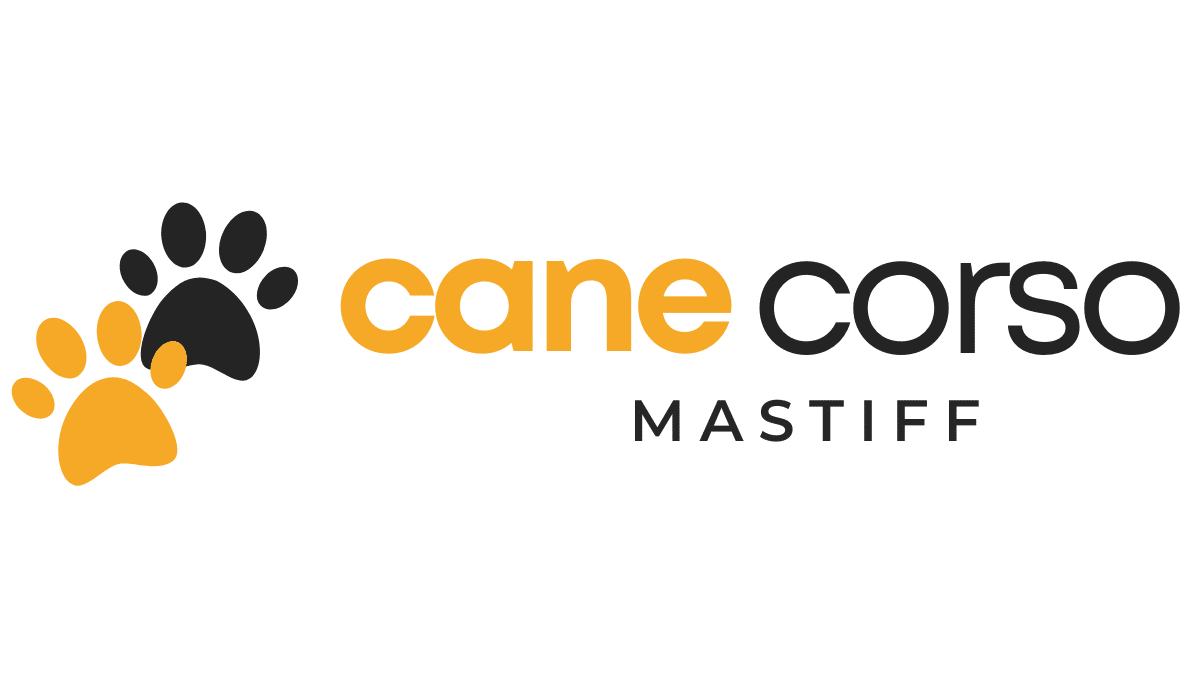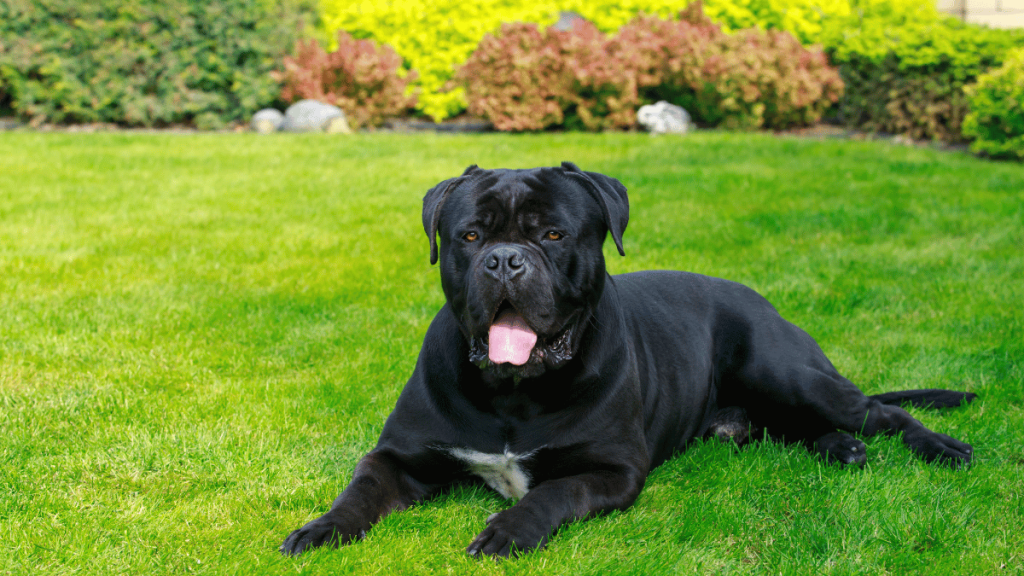In 2025, Cane Corsos continue to be a popular giant breed, requiring good quality food to maintain their health and vitality.
Many owners are turning to raw feeding as an alternative to traditional kibble.
The Dog Food Advisor recommends a balanced diet that supports their robust digestive system.For those who choose to feed raw, a carefully planned raw food diet can provide excellent nutrition. However, many dog owners still prefer high-quality commercial options.
When selecting dog food for Cane Corsos 2025, it’s essential to consider their age, activity level, and specific nutritional needs.
For senior dogs, specialized formulas can help maintain joint health and cognitive function.
Regardless of the chosen diet, consistency and portion control are key to keeping these majestic dogs in peak condition. Always consult with a veterinarian to determine the best feeding plan for your Cane Corso dog breed.
Best Dog Food For Cane Corso Puppies
Choosing the best food for Cane Corsos in 2025 requires that you keep in mind what this large breed of dogs generally needs. The Cane Corso dog breed<> is a mastiff and needs to eat a diet that provides for its large size and energy levels.
In fact, large breed puppy food is crucial for puppy stages to guarantee proper development and growth. Many puppy food formulas contain vital nutrients that are good for joint health such as glucosamine and chondroitin.
At this stage, a combination of dry food and wet food would help to ensure healthy digestion.
That said, several dog food brands make options geared towards this giant breed’s tastes, whether that’s grain free dog food for picky eaters or anything that can help maintain gut health.
Renowned pet nutrition websites often endorse labels like Purina for their premium components.
Grasping the specific requirements of your San Rocco Cane Corso will assist you in selecting the most suitable nutrition for Cane Corsos, ensuring their prosperity in 2025.
Why Is Choosing the Right Dog Food Important for Cane Corsos?
This working dog requires a balanced dog’s diet with adequate protein content to support its active lifestyle and prevent issues like hip dysplasia. Options like Pro Plan and Diamond Pet Food offer specialized food for a Cane Corso. Additionally, Purina Pro Plan and Blue Buffalo are popular choices among dog owners seeking nutritious meals.
It’s vital to find the best food that suits your Cane Corso puppies. Incorporating ingredients like sweet potatoes, fish oil, and calcium and phosphorus can help in their growth and development.
Some owners prefer feeding a raw diet, including raw meaty bones and raw meat, to ensure their dog gets natural nutrients.
However, one must be cautious of dog food recalls and potential food allergies.
With an abundance of dog food options, different dog foods like Diamond Pet Food and Pro Plan cater to specific needs.
Evaluating different dog brands helps dog owners feed my dogs the preferred food and ensure their breed adult maintains optimal health. Ensuring the dog will get the necessary nutrients is imperative when choosing the best food for a Cane Corso.
What Nutritional Needs Do Cane Corsos Have?
When contemplating a large-breed dog such as a Cane Corso, it is essential to meet their unique dietary requirements for optimal health and weight control.
To provide your dog with excellent care, select a high-quality dog food that features important components like glucosamine and chondroitin sulfate.
These ingredients promote joint health and mobility, which are critical for active dogs. Popular choices in dog food include brands like Taste of the Wild and Life’s Abundance No Grain.
Feeding our dogs a nutritious diet is vital, particularly for growing puppies. A dependable puppy formula can guarantee they get the necessary nutrients.
While some pet owners may prefer to offer fresh ingredients like raw chicken, it is crucial to verify that commercial foods have never been recalled. Brands like Science Diet are frequently relied upon for their reliability and nutritional value.
How Does Life Stage Affect Their Dietary Requirements?
Life stage significantly influences a dog’s food needs. Puppies require abundance dog food rich in nutrients to support growth and overall health. When you give your dog food, consider their age for optimal weight management.
Older dogs need a source of glucosamine and chondroitin for joint health, which are key ingredients on any dog food list.
As dogs eat differently based on age, choose brands that have never had a recall, like Lifes Abundance No Grain. This diet will keep your dog healthy at any stage. If you want to feed your dog well, always consider their life stage when choosing food.
What Are the Risks of Poor Nutrition in Cane Corsos?
Poor nutrition in Cane Corsos can lead to various health issues. It may cause obesity, which strains their joints and heart. Inadequate diet can result in a weakened immune system, making them prone to infections. Additionally, nutrient deficiencies might affect their coat quality and overall well-being, leading to a shorter lifespan.
Top Picks for Cane Corso Dog Food in 2025
Cane Corso owners have several excellent dog food options to choose from. Premium brands are focusing on high-protein formulas that support the breed’s muscular build and energy needs.
Many top picks include natural ingredients and probiotics to promote a healthy digestive system.
Grain-free options remain popular, though some brands are reintroducing wholesome grains for added nutrition. Raw and freeze-dried diets are gaining traction among health-conscious pet owners.
Some standout choices include:
- PrimeCanine Ultra Performance
- NaturePaw Cane Corso Formula
- VitalHound Grain-Inclusive Balance
- RawRevolution Freeze-Dried Complete: These foods cater to the Cane Corso’s specific nutritional requirements, ensuring optimal health and longevity for this magnificent breed.
Check out also Blue Buffalo Wilderness. It’s packed with high-quality protein to keep your big buddy energetic and strong. If your Corso has a sensitive tummy, Purina Pro Plan Sensitive Skin & Stomach is a lifesaver with its gentle formula.
Next, there’s Orijen Original, which is a bit on the pricey side but worth every penny for its top-notch ingredients. And don’t forget Merrick Grain-Free if you’re looking for something without grains. It’s a fan favorite for its healthy mix of proteins and veggies.
What Are the Best Dry Dog Foods for Cane Corsos?
Due to their large size and muscular build, Cane Corsos benefit from food rich in protein and healthy fats to support muscle development and energy levels.
Brands like Royal Canin and Blue Buffalo offer formulas designed for large breeds, complete with nutrients to promote joint health and coat condition. Look for foods with glucosamine and chondroitin for joint support, and ensure they contain no harmful additives.
It’s crucial to choose a formula that aligns with your dog’s age, activity level, and any specific health concerns. Regular veterinary consultations can help in maintaining optimal nutrition for your Cane Corso.
Conclusion: Making the Best Choice for Your Cane Corso’s Diet
In conclusion, selecting the optimal diet for your Cane Corso is crucial for maintaining their overall health and ensuring they maintain a healthy weight. Understanding the specific nutritional needs of this large, muscular breed can guide you in choosing the right balance of proteins, fats, and carbohydrates.
It’s essential to consider the age, activity level, and any health issues your dog may have when deciding on their diet.
Consulting with a veterinarian can offer valuable insights tailored to your Cane Corso’s unique requirements. Regularly monitoring your dog’s weight and adjusting their diet accordingly will help prevent obesity and related health problems.
Ultimately, a well-balanced diet not only supports a healthy weight but also contributes to a longer, happier life for your beloved Cane Corso.
What Should You Remember When Choosing Dog Food?
When choosing dog food, it’s essential to consider your dog’s specific nutritional needs. Different breeds, ages, and activity levels require tailored diets. Look for high-quality ingredients, ensuring that the first ingredient is a source of animal protein. Avoid foods with excessive fillers, artificial additives, or unspecified meat by-products.
Moreover, consult your veterinarian for recommendations based on your dog’s health status and any dietary restrictions. Finally, consider your dog’s preferences; they are more likely to thrive on food they enjoy.
How Can You Monitor Your Cane Corso’s Health and Nutrition?
Monitoring your Cane Corso’s health and nutrition involves several key practices. Start by scheduling regular veterinary check-ups to assess your dog’s overall health and address any specific concerns. Nutrition is crucial; choose a high-quality, balanced diet tailored to your dog’s age, weight, and activity level.
Observe your Cane Corso’s body condition regularly, ensuring they maintain a healthy weight. Additionally, keep an eye on their energy levels and behavior, as changes may indicate health issues. Finally, ensure they have access to fresh water and engage in regular exercise to promote overall well-being.

